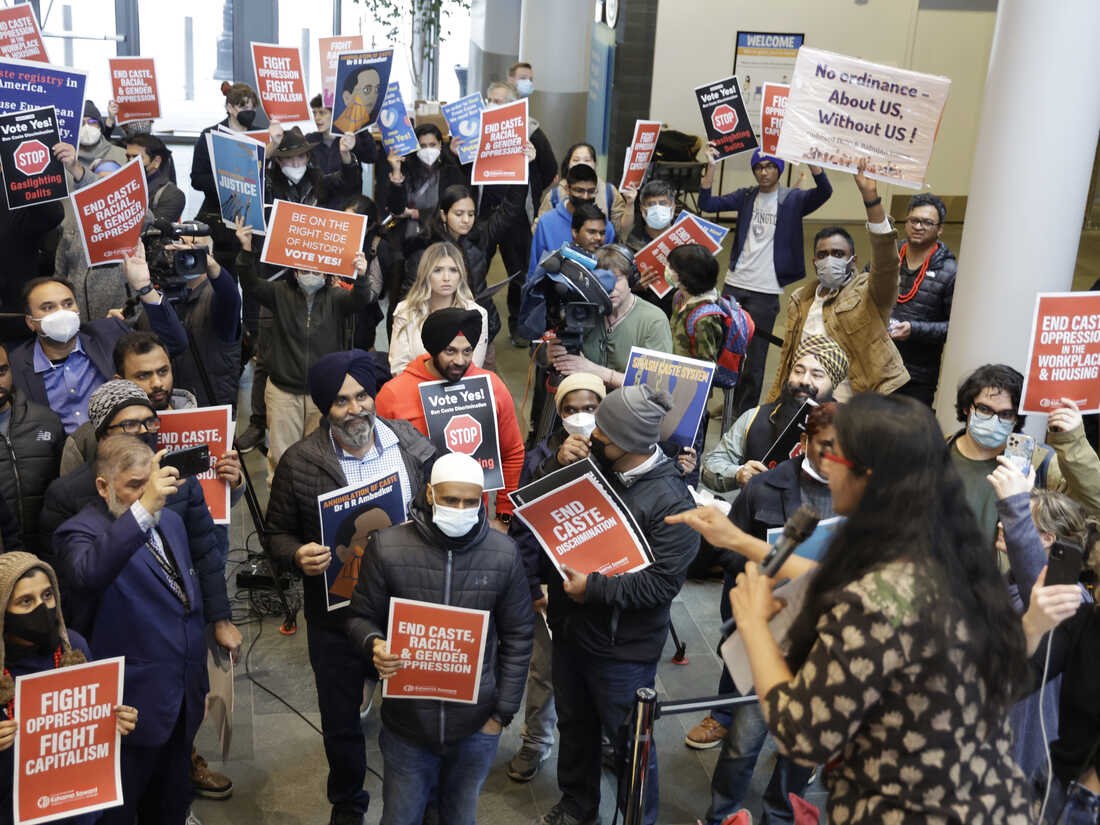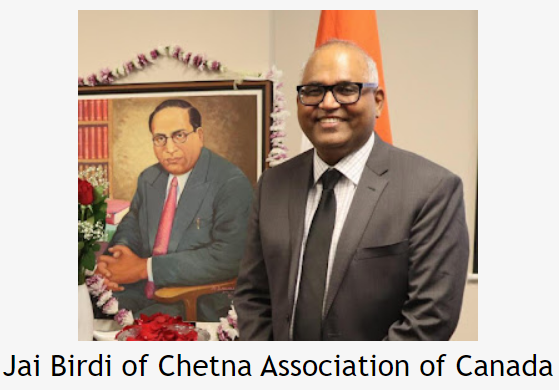DESIBUZZCanada
Events Listings
Dummy Post

International Day Of Yoga To Be Virtually Celebrated Saturday At 4pm

CANCELLED: Coronavirus Fears Kills Surrey’s Vaisakhi Day Parade

ADVERTISE WITH US: DESIBUZZCanada Is The Most Read South Asian Publication Online

SURREY LIBRARIES: Get Technology Help At Surrey Libraries

WALLY OPPAL: Surrey Police Transition Update On Feb. 26

GONE ARE THE DAYS - Feature Documentary Trailer

Technology Help At Surrey Libraries

Birding Walks

Plea Poetry/short Story : Youth Contest

International Folk Dancing Drop-in Sessions
Dalit Organization Chetna Association Of Canada Says Racial Discrimination Can Be Traced To The History Of Colonization
- March 21, 2024

International Day For The Elimination Of Racial Discrimination To Be Observed On March 21!
By Chetna Association of Canada
” Caste is a contempt. Contempt pierces even through the shell of the tortoise” - unknown source
When March 21 is observed every year as The International Day for the Elimination of Racial Discrimination, why inherited caste system, which is an important determinant of life opportunity for a major chunk of the world’s population is not given the same significance in global development policy debates as gender, race, age, religion, or other identity characteristics? The caste history is replete with more inhuman treatment and suffering than racial discrimination. The racial discrimination can be traced only with the history of colonization. In comparison, the history of caste is much older. To put it more clearly, why addressing caste-based inequality and discrimination does not feature in global commitments such as the Sustainable Development Goals? It is imperative for the world community to address this issue in the wake of influx of immigrants, of higher castes as well as Dalits, lower castes from South Asian countries. The higher caste- immigrants came with all their bag and baggage, the caste superiority hidden in their heads and the Dalits with a bundle of nerves. Their caste complexity is a nightmare for them. The Dalits even in developed countries are afraid to ‘stick their neck out’. The Dalits are made to live as timid and tense as if they were back home. It is a sort of ‘disability’ factor for them. The caste has become a nightmare for them in developed countries like UK, USA, Canada, Australia etc.
The Chetna Association of Canada ("Chetna”) has been active for a long time to spread a message of equality and inclusion among all castes, particularly in Canada and the United States of America. Its efforts bore fruit to some extent. During 2023, some cases of caste-based discrimination caught due attention of the Canadian and the US authorities.

In February 2023, the City of Seattle passed an ordinance against caste related discrimination, making it the first city outside of India to add caste as a “protected category”.
In Canada, the cities of Burnaby (BC) and Brampton (Ontario) along with the Toronto District School Board also responded to the growing concerns of caste discrimination. The Toronto District School Board and the City of Brampton asked the Ontario Human Rights Commissioner to assess the concerns of caste discrimination and make the necessary recommendations. The City of Burnaby asked its staff to study the issue of caste-based discrimination and make appropriate recommendations to the city council.
In October 2023, Office of the Ontario Human Rights Commissioner acknowledged the issue of caste oppression and issued a policy statement confirming the Human Rights Commissioner has the legal obligations for preventing caste-based discrimination. The Commissioner stated that it is up to the lawmakers to decide whether caste should be added as a “protected category”.

A case that came before the BC Human Rights Tribunal in 2023 confirmed that the existing category of “ancestry” in the BC Human Rights Code can include caste when adjudicating on the complaints related to the caste based discrimination. It will not be out of place to mention that the caste system is even deeper than ‘ancestry’ in Canada. It has been inherited by the Dalit community for almost two millennia.
The California State Assembly (USA) passed overwhelmingly a motion to add caste-based discrimination to the existing anti-discrimination laws and policy framework. Unfortunately, the voice of the pro-caste majority population persuaded the State’s Governor to veto the Assembly’s decision. The Governor said that the existing legal framework was sufficient to address caste discrimination in California. This decision has created a setback to the anti-caste lobby. According to Chetna, though there exist anti-discrimination laws, both in Canada and the US, it is hard to understand the manifestations of caste-based discrimination. There is a legal necessity to add caste as a “protected category”.
The Chetna Association of Canada will, therefore, continue its efforts in one form or the other to spread awareness to eliminate caste-based discrimination. There is no doubt that people would live a bit longer if they don’t know that they belong to Dalit community. More specifically, the Chetna plans to:
*Host forums and observe April 14 as the Dr. B.R. Ambedkar Equality Day; Dalit History Month; Constitution Day; and, October 14 as the Emancipation Day.
*Continue to influence the BC Human Rights Commissioner to issue a policy statement on caste matters in British Columbia.
*Continue to influence the Province of British Columbia to review and update its legal and policy framework on caste related discrimination.
*Continue to influence the lawmakers to add caste as a protected category to the BC Human Rights Code and the Multiculturalism Act.
*Continue to collaborate and partner with the post secondary institutions and other community organizations on establishing an institute in honor of Baba Saheb Dr. Ambedkar and provide a space (virtual and physical) to the academia and the community organizers to come think and contribute to the "think tank" and advancing the ideas of Dr. Ambedkar and other champions of inclusion and social justice.


















